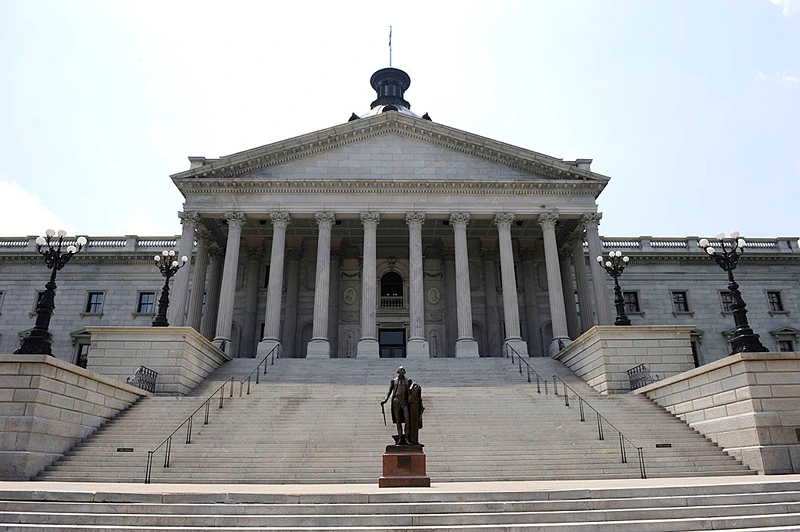 Pro-life bills fail in South Carolina and Nebraska – One America News Network" title="Pro-life bills fail in South Carolina and Nebraska – One America News Network" />
Pro-life bills fail in South Carolina and Nebraska – One America News Network" title="Pro-life bills fail in South Carolina and Nebraska – One America News Network" />

(Photo by Davis Turner/Getty Images)
OAN Roy Francis
UPDATED 2:23 PM – Friday, April 28, 2023
Bills aimed at restricting abortion in South Carolina and Nebraska have both failed in their state legislatures on Thursday.
In South Carolina, six Republicans helped to block a motion that ended the debate on a near-total abortion ban bill, only to be followed by a similar situation in Nebraska, where a six-week ban on abortion was being debated.
The 22-21 vote on Thursday has marked the third time that a near-total abortion ban has failed in the Republican-led chamber of South Carolina since the Supreme Court reversed Roe v. Wade in the summer of 2022.
Before the bill failed, Governor Henry McMaster (R-S.C.) urged lawmakers in the state to pass a bill that the “vast majority of our state” accepts, adding that most people in the state supported a 2021 law banning abortion as soon as cardiac activity is detected.
Senator Penry Gustafson (R-S.C.) told CNN that she is in favor of the bill, however she voted against the bill because she did not believe that it would pass the state’s Supreme Court. She further expressed concerns about the nationwide 15-week ban that has been promoted by some Congressional Republicans.
“I’ve talked with some of my colleagues, especially my female colleagues, and we think it’s a bad idea. If you are going to send the decision-making to the states, we need to do that. We need to legislate on behalf of our states,” she said.
Meanwhile, a vote in Nebraska aimed to end the debate in order to advance the bill failed, the motion needed 33 votes, but the vote turned out as 32-15, even with Governor Jim Pillen (R-Neb.) publicly supporting it. This makes the likelihood of the bill advancing in 2023 very unlikely.
The failure to pass the bill in Nebraska marks the second straight year that it has not been advanced. State law bans abortion after the 20th week of a pregnancy, however the new bill would have banned abortion as soon as cardiac activity is detected.
Republicans in Nebraska hold 32 of the 49 seats, and even though bills can advance with a simple majority vote of 32, it takes 33 votes to end debate in order to overcome a filibuster. The required 33rd vote in Nebraska fell through when Senator Merv Riepe (R-Neb.), a cosigner of the bill, abstained from voting after expressing concerns that by six weeks, women might not even know that they are pregnant.
The Nebraska bill included exceptions for cases of rape, incest and life-threatening medical emergencies. The bill also made specific exception for ectopic pregnancies and IVF procedures. The bill also did not ascribe criminal penalties to those involved with abortion procedures, instead it subjected doctors who violated the bill to professional discipline, up to and including losing their medical licenses.
The two failures to pass the abortion ban bills come a week after the Supreme Court decided to leave in place the Food and Drug Administration’s approval of mifepristone, a widely used abortion pill that is available by mail. The Supreme Court had ruled that the pill will remain widely accessible while the lower court proceedings continue.
The decision from the Supreme Court, which had a 6-3 Conservative majority, is part of the most significant abortion case that the court has seen since it overturned Roe v. Wade.
The growing topic of abortion has also become a hot topic among the GOP presidential hopefuls for the 2024 election.
Stay informed! Receive breaking news blasts directly to your inbox for free. Subscribe here. https://www.oann.com/alerts